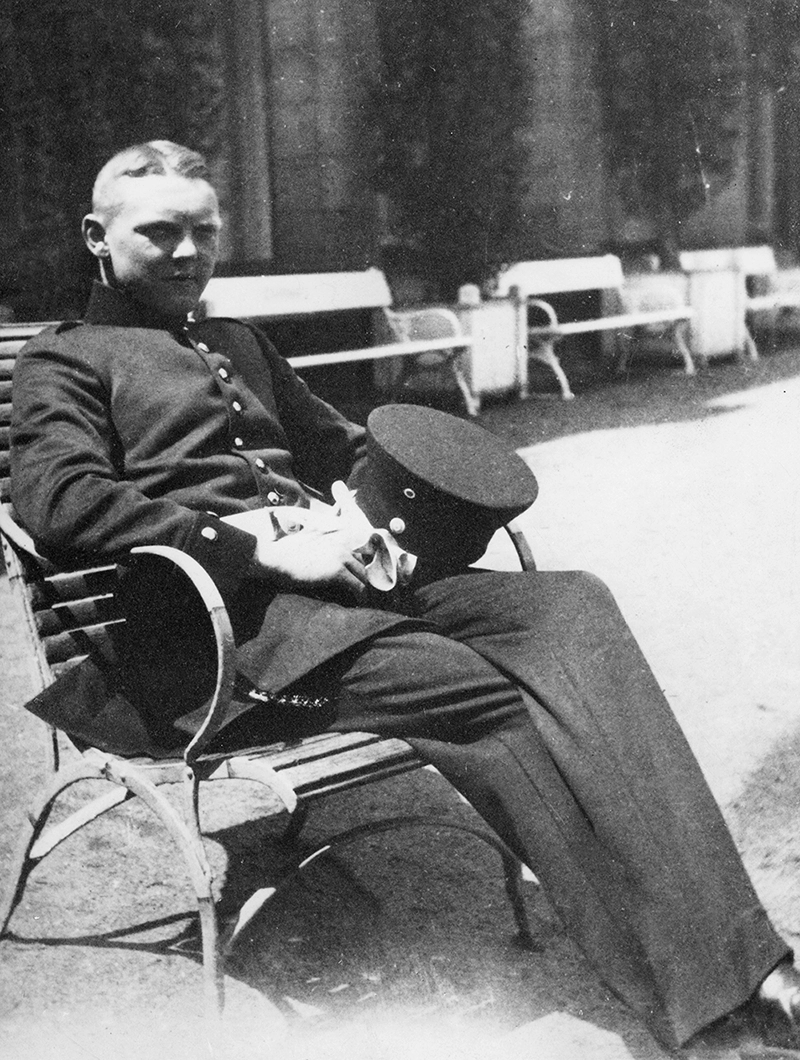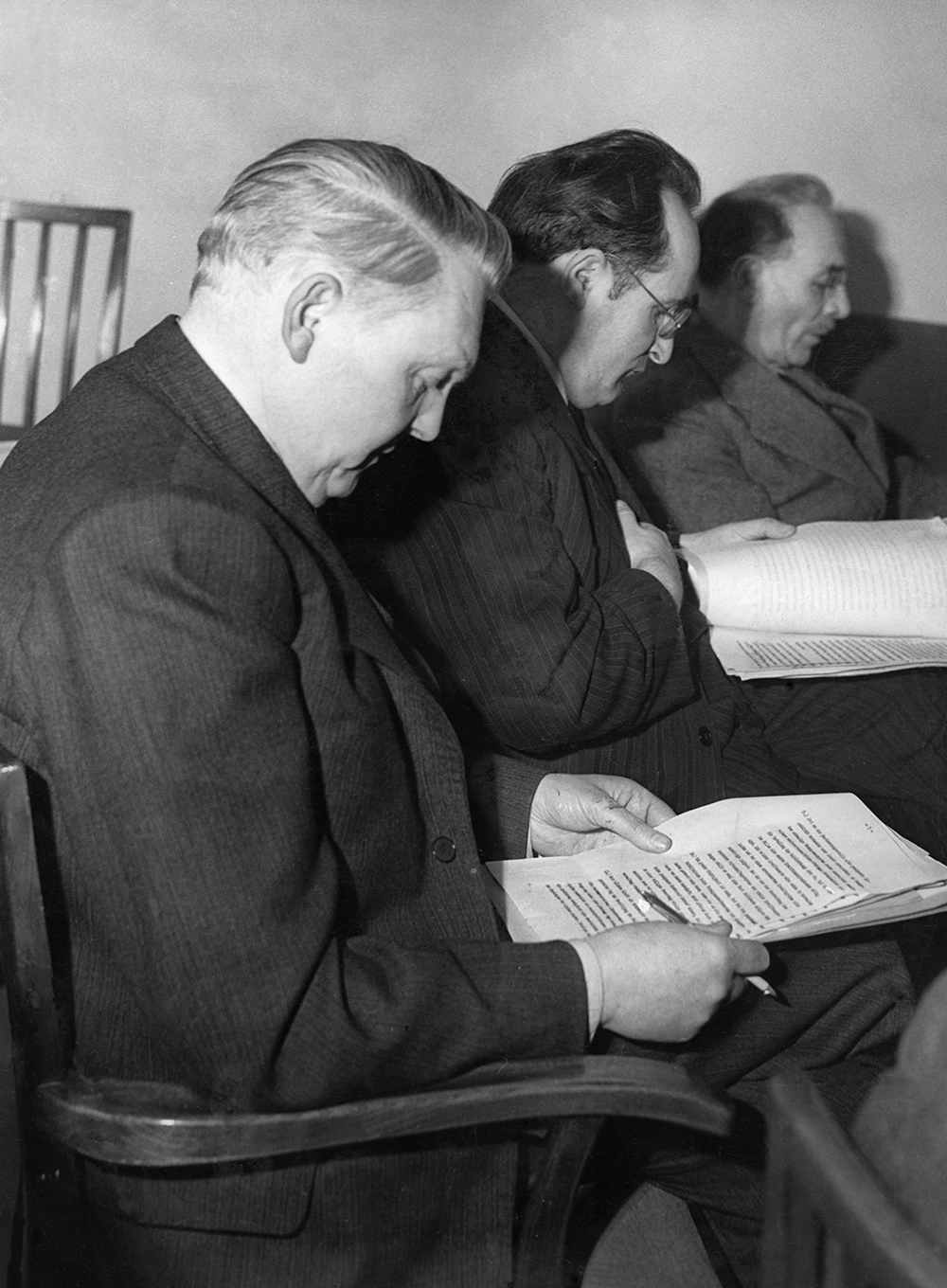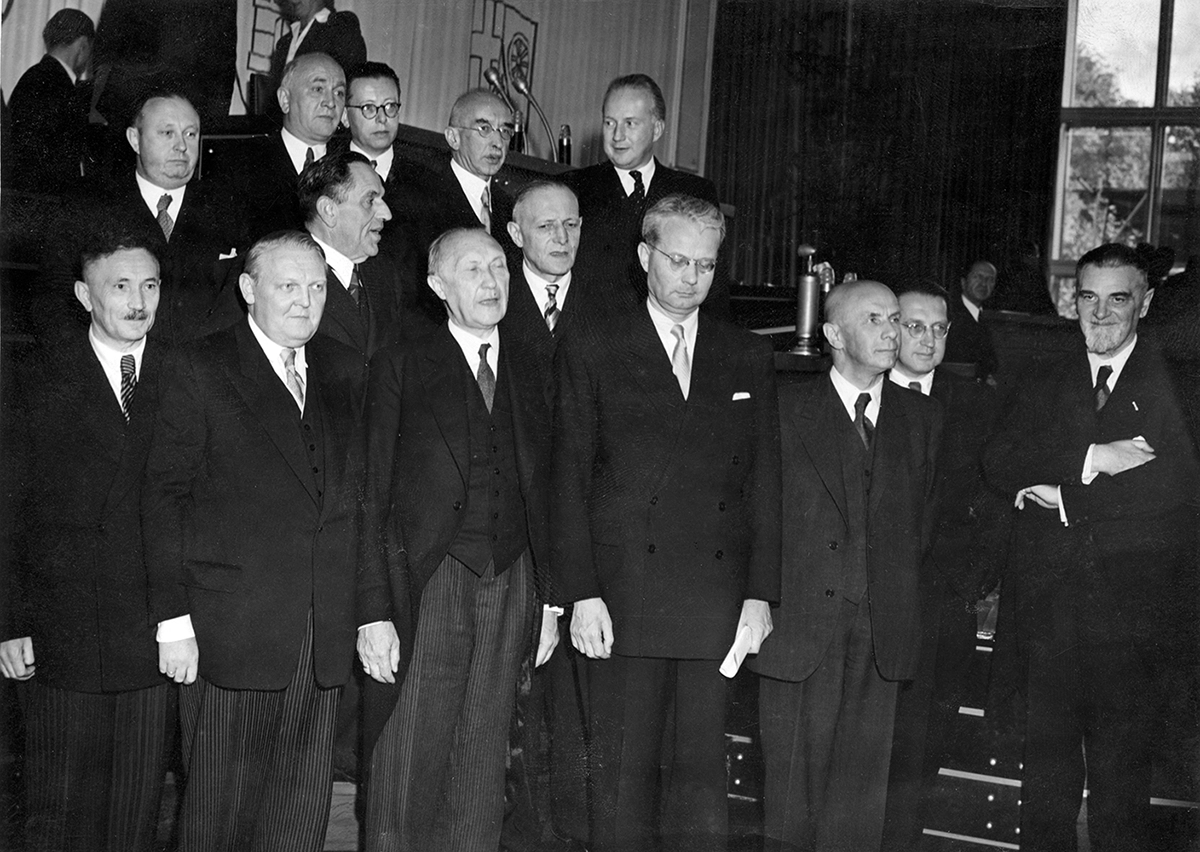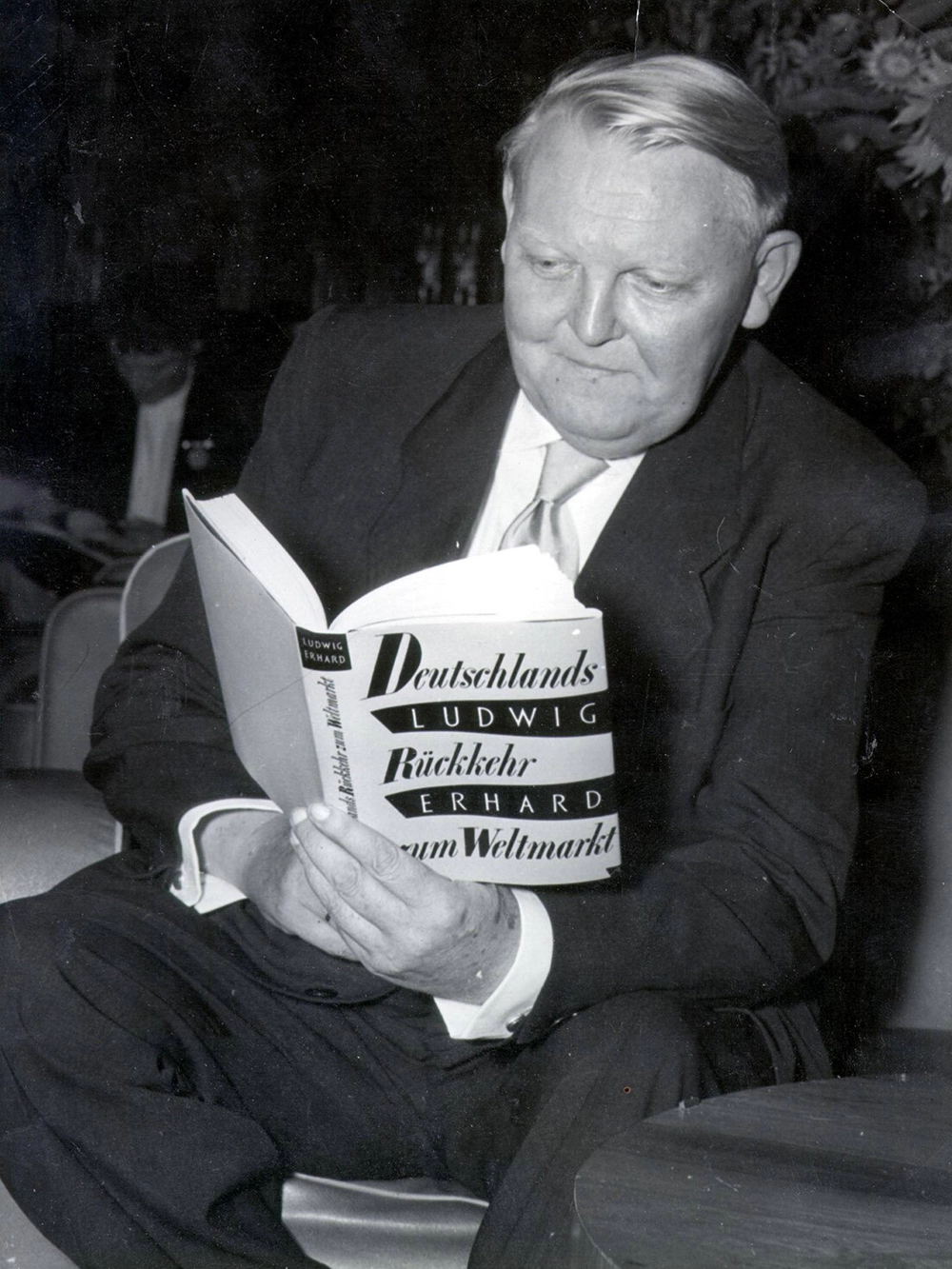Ludwig Erhard’s name is synonymous with the concept of the social market economy, which remains the cornerstone of the Federal Republic of Germany’s economic system to this day. Erhard‘s political journey led him from serving as the Federal Minister of Economics under Chancellor Konrad Adenauer from 1949 to 1963, to holding the prestigious office of Chancellor himself from 1963 to 1966. Erhard also played a pivotal role in the establishment of the ifo Institute.


Academic Career Over Family Textile Business
Ludwig Erhard was born on February 4, 1897, in Fürth, Bavaria. After attending elementary and secondary school and completing an apprenticeship as a linen merchant in 1916, he was expected to take over the family textile business. However, his life took a different turn: Despite a foot deformed by polio, Erhard served as a soldier in World War I from 1916. He was severely wounded in 1918 at Ypres (Belgium) and discharged from military service in 1919.
Instead of joining the family business, he enrolled at the Nuremberg College of Commerce, graduating in 1922 with a degree in business administration. He then studied business economics, national economics, and sociology at the University of Frankfurt, with a particular interest in economics: Erhard once described himself as a student who “wanted to learn business economics but was possessed by a zeal for economics.” In 1925, Erhard earned his PhD and joined the family business as a managing director, but he had to declare bankruptcy for the company in 1929.
A year before the bankruptcy of his family business, Ludwig Erhard had already returned to academia, joining the Institut für Wirtschaftsbeobachtung der deutschen Fertigware, a marketing research institute. There, he rose to the position of Deputy Research Director. In 1942, he left this role to establish his own institute for consumer research, the Institut für Konsumforschung, which, even at the height of World War II, began to address questions of post-war reconstruction. The founding of this research institute is considered a key precursor to the establishment of the ifo Institute.
A “Left-wing Democrat” Takes Bavarian Economic Helm
Erhard’s successful work in economic observation, economic policy analysis, and advising practitioners paved the way for his political career. The very day after American troops liberated his hometown of Fürth on April 18, 1945, Erhard stepped forward, offering his vast economic expertise to the occupying forces. Recognizing his potential, the American military governor appointed him as the Minister of Trade and Industry in the nascent Bavarian state government on October 22, 1945. At this time, Erhard was not affiliated with any political party but was nonetheless categorized as a “Left-wing Democrat” in the administration led by the Social Democratic Minister President Wilhelm Hoegner.
At the turn of the year 1945/46, Ludwig Erhard assessed the Bavarian government’s capacity for reconstruction as limited. He stated that “a purely Bavarian economic policy could not solve the impending problems; this could only be achieved within a German framework and in cooperation beyond Germany's borders.” This demand was seen as provocative by some of his government colleagues. Ludwig Erhard increasingly isolated himself in Bavarian politics. After the first elections to the Bavarian State Parliament on December 21, 1946, he lost his position.


Broadening Horizons Beyond Bavaria
Once again, a professional setback turned out to be the next step in Ludwig Erhard’s rapid career ascent. The post-war years in Munich not only fueled his political ambitions but also provided him opportunities to engage with leading national economists and financial scholars. He was particularly active in the “Volkswirtschaftliche Arbeitsgemeinschaft für Bayern,” founded by Adolf Weber, where he gained further economic expertise that propelled his political career beyond the borders of Bavaria. In 1947, Erhard headed the Special Division Currency and Credit at the Finance Administration of the British-American Bizone in Frankfurt. On March 2, 1948, he was elected Director of the Department for Economics of the Combined Economic Area, making him responsible for economic policy in the Western occupation zones. Following the first Bundestag election in 1949, Chancellor Konrad Adenauer (CDU) appointed him as the Minister of Economic Affairs in his first cabinet.
The German Economic Miracle
Ludwig Erhard was a staunch advocate for a free, social market economy, which led to remarkable growth in West Germany for a decade and a half. The Federal Republic emerged as a leading industrial and export nation.
After serving 14 years as Minister of Economic Affairs, Erhard moved into the Chancellor's office in 1963, but his tenure lasted only three years. Disagreements over economic and fiscal policies led to the collapse of the governing coalition between the CDU/CSU and FDP in 1966. During Erhard’s chancellorship, West Germany faced its first economic crisis, with economic growth having slowed since 1960. Criticism of Erhard’s austerity policies grew louder. On November 10, 1966, the CDU/CSU parliamentary group nominated Kurt Georg Kiesinger as Chancellor, and on December 1, Erhard resigned.
On his 80th birthday on February 4, 1977, Erhard received numerous honors, and he passed away three months later on May 5 in Bonn due to heart failure. In line with his vision, the Ludwig Erhard ifo Center for Social Market Economy and Institutional Economics in Fürth today researches governmental actions in light of new challenges. In honor of Erhard, the main lecture hall at the ifo Institute has been renamed the “Ludwig Erhard Hall.”
Note: For the sources used in this text, click on the imprint.
